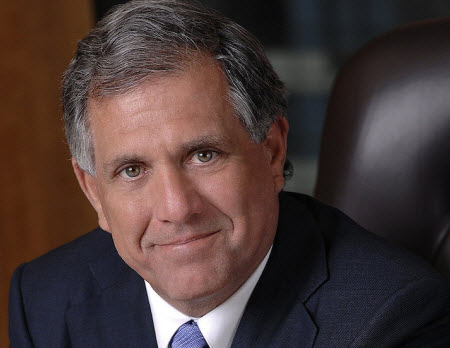Viacom-CBS Inching Closer, Moonves May Be Next Hurdle
The smarter way to stay on top of the multichannel video marketplace. Sign up below.
You are now subscribed
Your newsletter sign-up was successful

Viacom continues to line up its ducks for an inevitable merger with former corporate sibling CBS after the companies’ largest shareholder, Sumner Redstone, fired off a letter requesting the pairing.
While a hookup could benefit troubled Viacom, analysts said the plan could backfire if Redstone does not use a delicate hand, a trait for which the volatile media mogul is not known.
Redstone’s National Amusements, the theater chain that holds his 80% voting interests in both Viacom and CBS, urged the two companies to investigate a merger. The companies split in 2006, an effort to unlock hidden value.
At the time some skeptics thought the split could hurt Viacom, which lost the effective sledgehammer of retransmission consent from CBS in affiliate-fee negotiations.
Viacom got an early lift from the split — shares rose about 6% in the two months after the transaction — but in the longer run CBS was the real beneficiary. CBS shares have more than doubled since 2006, from $20.17 per share on Jan. 3, 2006, to $54.57 on Sept. 29. CBS also has been on the cutting edge of technology, launching in 2014 its own over-the-top service, CBS All Access, which now has about 1 million subscribers.
CBS chairman and CEO Les Moonves has been credited with much of that success, fueled by strong increases in retransmission consent revenue. CBS is expected to top $1 billion in that category this year, rising to $2.5 billion by 2020.
“For CBS, the opportunity can be distilled to one question — is a merger with Viacom a better opportunity than its standalone growth strategy?” Morgan Stanley media analyst Ben Swinburne wrote in a note to clients. “That case must be made. This is not a combination CBS needs to take on.”
The smarter way to stay on top of the multichannel video marketplace. Sign up below.
Viacom has had an extremely volatile summer, kicked off by Redstone’s ouster of then-CEO Philippe Dauman from the trust that would control his shares in the event of his death or impairment.
The 93-year-old Redstone, who had been thought to be seriously ill, was apparently rejuvenated by Dauman’s moves to sell a minority interest in Paramount Pictures, the movie studio that Redstone won in a bloody corporate battle with fellow mogul Barry Diller in 1994.
Dauman had been scrambling to pay down debt as Viacom’s ad revenue dwindled in the face of falling ratings for its teen and kid-oriented networks. Viacom still needs to reduce leverage. And, according to the National Amusements letter, a sale of all or a part of Paramount is still off the table. So is a sale of all or part of Viacom to a third party.
That would limit the options for any new CEO, including Moonves. He is an extremely well regarded media executive and most analysts believe he is Viacom’s best shot at a turnaround.
But taking on Viacom’s challenges could present little upside to the CBS executive other than an ego boost. Pressing Moonves to take on that challenge could push him into the arms of another needy media property, The Walt Disney Co.
Disney has had some difficulties as cord-cutting and skinny bundles have eroded the subscriber base of its flagship cable network, ESPN. Chairman and CEO Bob Iger also is nearing retirement — his employment deal expires in 2018 — and the company passed on the former top candidate to replace him, chief operating officer Thomas Staggs, earlier this year.
Moonves, with his experience running broadcast and cable networks, would be an inspired choice to replace Iger. And, at least publicly, Moonves has been indifferent to a Viacom merger, saying at a recent industry conference that CBS was not in active discussions with Viacom. While that doesn’t mean talks couldn’t happen later, some analysts are warning Viacom to use a light touch when dealing with Moonves.
